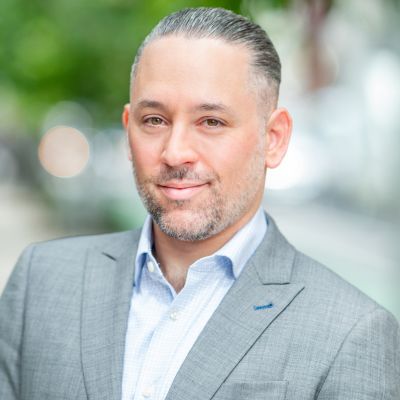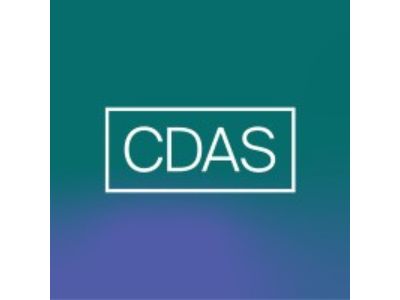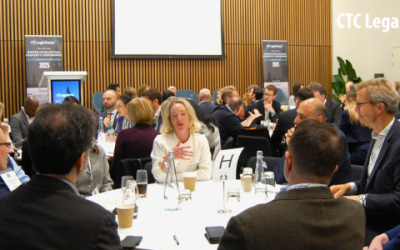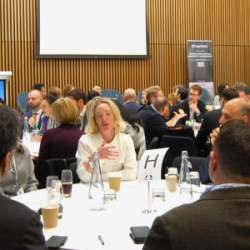George Carlin was often prescient in his scathing social commentary and criticism of modern society. In his 2006 special, “Life is Worth Losing,” he said: “I’ve been uplinked and downloaded, I’ve been inputted and outsourced, I know the upside of downsizing, I know the downside of upgrading.” Nearly 20 years later, Carlin had, in fact, been uplinked, downloaded, inputted, and outsourced by way of an allegedly AI-generated soundalike. However, according to his daughter Kelly Carlin, this doppelganger was “a poorly executed facsimile cobbled together by unscrupulous individuals.” In other words, all downside, no upgrade.
In January 2024, the Dudesy podcast (run by comedian Will Sasso and writer Chad Kultgen) released “George Carlin: I’m Glad I’m Dead,” which they claimed was an AI-generated Carlin comedy special. The estate of the late comedy legend sued the creators for copyright infringement and violation of Carlin’s publicity rights based on their claim that the Dudesy “model” was trained on Carlin’s material. The defendants later said the material was human-written and performed by a person using a voice converter. Regardless, the California lawsuit, Main Sequence, Ltd. v. Dudesy, LLC, quickly settled, with the media reporting in early April that Dudesy removed the video from YouTube and agreed to be permanently enjoined from uploading it again. It does not appear that any money changed hands.
This was a swift end to one of the many high-profile lawsuits revolving around generative AI infringing the rights of creatives, and there may be lessons to learn from the case’s prompt conclusion. While it is unclear whether any of the below issues motivated the settlement, they shed light on the unsteady ground on which celebrity soundalike claims stand.
First, it is important to understand the difference between copyright and the right of publicity. Depending on what state’s law applies, people—during life and sometimes after—generally can sue for unauthorized commercial use of their name, image, voice, or likeness. However, they do not own copyright rights in their name, image, voice, or likeness. Rather, the owner of the rights to an image or audiovisual work (e.g., a photographer or TV or movie studio) or a sound recording (e.g., a record label) containing the likeness or voice would typically retain the copyrights in those works (although Carlin would likely own the copyrights in the underlying jokes, monologues, etc.)
Second, while a plaintiff only needs to provide a “short, plain statement” to state a claim in federal court, in copyright cases, pleadings must identify the allegedly infringed works with enough specificity to provide defendants with notice of what was supposedly infringed. The Main Sequence complaint did not disclose which works—e.g., TV specials, books, audio recordings—were allegedly copied. This shortcoming would have been easy fodder for a motion to dismiss.
Third, the United States is both unique and anachronistic in its prerequisites to suing for copyright infringement. While authors automatically own the copyrights to original works upon “fixation” in a tangible medium, to enforce those rights in court, authors must register their works with the Copyright Office. The Main Sequence complaint said Carlin’s estate had applied for registrations—not obtained them. Per the Supreme Court, having registration in hand is a threshold requirement for filing a suit, and the case could have been dismissed if the estate had not procured registrations before filing.
Finally, because Carlin is deceased, the California common law right of publicity does not apply, and the statutory right’s more limited scope posed significant obstacles. While the statute prohibits unauthorized use of one’s “voice,” prior cases have construed “voice” literally, to the exclusion of soundalikes. Contrast this with the unavailable common law right, which broadly covers “identity,” and arguably includes soundalikes. This catch-22 could have spelled disaster for the right of publicity claim.
Main Sequence was one in a growing list of lawsuits concerning the use of celebrity soundalikes that include notable voices such as Bette Midler, Tom Waits, and Rick Astley, but was the first to involve AI (even if only superficially). Drake, the Weeknd, Eminem, and most recently, Scarlett Johansson, have also had their voices mimicked by AI, but have not sued, at least as of this writing. However, as AI technology rapidly develops and proliferates, more lawsuits like Main Sequence are inevitable.
Until Congress passes a federal right of publicity or amends the Copyright Act, rightsholders are left with a state-by-state patchwork of publicity laws and a copyright statute whose last major overhaul became effective during the Carter administration. Add the legal uncertainties surrounding AI, and what is left is a volatile state of play in litigation over publicity rights and copyrights alike. Accordingly, careful pleading and strategic planning are paramount when pursuing such claims in a court of law and not just in the court of public opinion.

Written by Scott J. Sholder
Partner, Co-Chair Litigation Practice Group, Cowan, DeBaets, Abrahams & Sheppard LLP
You may also like…
Winter Intellectual Property Conference 2025: a review
As a proud member of the Editorial Board of The Trademark Lawyer, I could not decline the invitation of the...
Jurisdiction in trademark rectification to vest with the High Court, appellate to the Registry
In a recent judgment in the matter of PAS Agro Foods v. KRBL Limited (2025:KER:79840), the Kerala High Court addressed...
Takeaways from J.M. Smucker Company v. Trader Joe’s Company for brand owners regarding trade dress enforcement
Dupes and generic brands, which were once seen as inferior alternatives to name-brand products, have become more...
Contact us to write for out Newsletter














